

Courage Under Fire: The Definitive Account from Inside the Capitol on January 6th
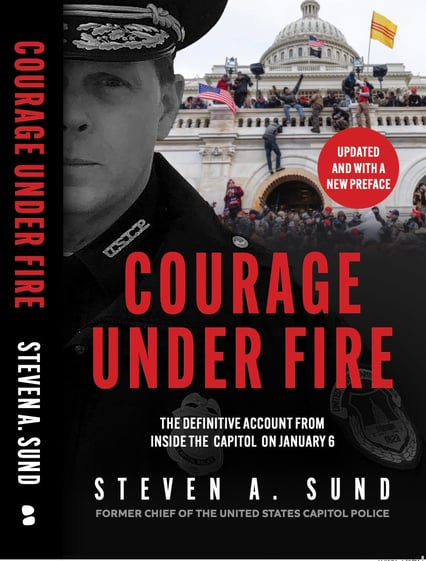

On January 6, 2021, for the first time since the War of 1812, the US Capitol came under siege. Blood was spilled in the halls of Congress, marking one of the darkest days in American history and testing the courage of those defending it. Courage Under Fire, named to honor the bravery of Capitol defenders, is former US Capitol Police Chief Steven A. Sund’s firsthand account of the events leading up to and during that attack.
Chief Sund’s narrative delivers a gripping, minute-by-minute account of the brutal assault as law enforcement officers—outnumbered fifty-eight to one—fought valiantly to defend the Capitol against an enraged mob. Despite Sund’s repeated pleas for assistance, the National Guard was delayed due to political hesitation, arriving only after the Capitol had been secured.
Officers were assaulted with pipes, flagpoles, boards, makeshift weapons, bear spray, and other chemical irritants. Pipe bombs were discovered near the DNC and RNC, which Sund viewed asmdiversionary tactics designed to distract and escalate the chaos. Law enforcement faced intense and immediate criticism from the media and members of Congress in the charged, post–George Floyd, “Defund the Police” climate, with little recognition of Sund’s efforts to regain control of the Capitol. Despite his repeated requests for reinforcements and decisive actions, Sund was subjected to immense pressure and ultimately forced to resign. Meanwhile, Congress, led by those responsible for key decisions that left the Capitol vulnerable before and during the attack, impeached a sitting president.
Ironically, while Sund was forced to resign, Congress’s direct role in the Capitol’s vulnerability was ignored. The leaders at the Pentagon who stalled the National Guard were lauded as heroes, while the real heroes—Sund and his officers—were left to bear the blame for the chaos they were forced to confront.
As one of only ten men to serve as chief of the US Capitol Police, Sund details his command decisions, the intelligence failures that left his officers exposed, and the obstacles he encountered in securing National Guard support. His account, validated by journalists and congressional reviews, presents a clear, factual recounting of the crisis—not a political exposé. Sund’s story highlights the unprecedented challenges his officers faced, their courage and the lingering questions about why the Capitol was left so vulnerable on that fateful day.
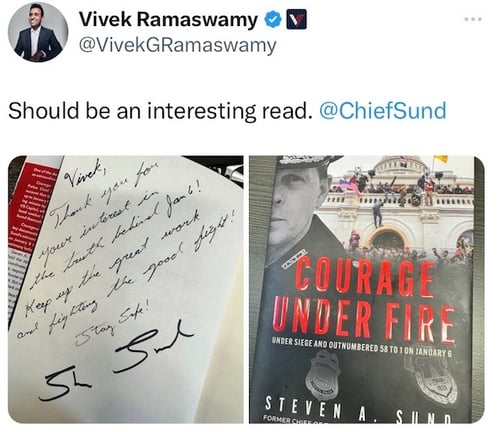







Endorsements
Read what others say about Chief Steven Sund's impactful work.
Currently, over 500 reviews on Amazon and a 4.5 Star Rating.
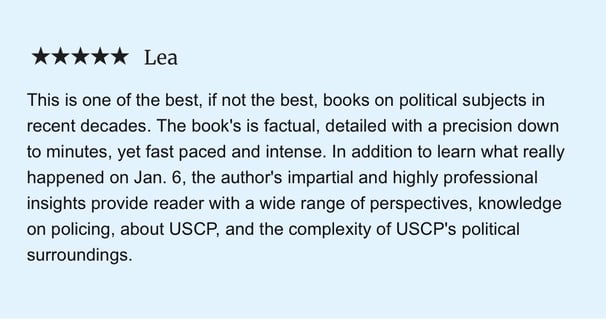



25 on 2025: A police leadership playbook
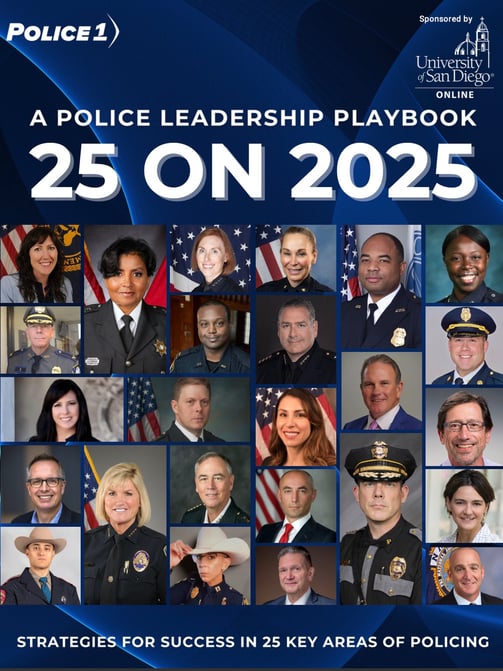

Get expert insights and actionable strategies to tackle 25 key challenges in modern policing
Law enforcement leadership is evolving. In 2025, police chiefs, sheriffs, and command staff face a rapidly changing landscape shaped by advancing technology, evolving public expectations, and the ongoing need to build trust, resilience and inclusivity within their agencies.
The “25 on 2025: A Police Leadership Playbook,” sponsored by the University of San Diego, offers practical insights and strategies to help leaders navigate these challenges. Created by experts and practitioners, this guide equips you with actionable tools to strengthen your team, serve your community and prepare for what’s next.
We address 25 critical law enforcement topics:
Acute Behavioral Emergencies by Dr. Mike Levy: Managing collaboration between law enforcement and EMS.
Artificial Intelligence (AI) by Dennis Chornenky: Ensuring ethical and effective AI use in policing.
Campus Policing by Chief Paul M. Cell (Ret.): Addressing bias-based violence and emerging threats.
Civilian Executives in Law Enforcement – Assistant Commissioner Elizabeth M. Daitz: Integrating civilian expertise into leadership.
Civil Unrest by Steven A. Sund: Preparing for and managing protests with trust and safety in mind.
Cognitive Bias Training by Lieutenant Brian Sunderman: Reducing bias in high-stress decision-making.
Community Engagement by Dr. Tarrick McGuire: Building trust and accountability with communities.
Community Policing by Deputy Chief Emada Tingirides: Empowering neighborhoods to play an active role in safety.
Data-Driven Policing by Chief Rachel Tolber: Using accurate and contextualized data to drive decisions.
Diversity, Equity, and Inclusion (DEI) by Captain Stephanie Flores: Promoting inclusivity within departments.
Drones as First Responders by Lieutenant Abrem Ayana: Leveraging technology while addressing privacy concerns.
Fleet Management by Chief Dave Norris: Transitioning to electric vehicles for sustainability.
Foot Patrol by Jerry Ratcliffe, Crime Reduction Strategist: Deploying strategies to enhance public trust and crime prevention.
Grant Funding by Marcy Calnan, J.D., Grant Specialist: Securing resources for innovation and community-focused programs.
Human Performance Science by Dr. Melis Yilmaz Balban: Training officers in stress management and resilience.
Internal Communications by Chief Roxana Kennedy: Fostering transparency and morale within departments.
Leadership Training by Chief Scott Hughes: Creating leadership programs that inspire trust and enhance performance.
Next-Generation 911 by Scott L. Brillman: Harnessing advanced tools for situational awareness.
Officer Wellness by Chief Kevin M. Lynch: Prioritizing mental and physical health to improve performance.
Operational Excellence by Chief John Letteney: Optimizing processes with data-driven insights.
Organizational Culture by Chief Doreen Jokerst: Cultivating accountability and inclusivity within agencies.
Real-Time Crime Centers by Andrea Cortez: Enhancing situational awareness and response.
Recruitment by Chief Troy M. Weisler: Developing innovative strategies to attract the next generation of officers.
Technology by Deputy Chief John McMahon: Balancing usability and long-term sustainability in law enforcement tools.
Women in Law Enforcement by Chief Gina Hawkins: Advancing representation and leadership opportunities
Crisis Command: Civil Unrest Preparedness for Law Enforcement Leaders
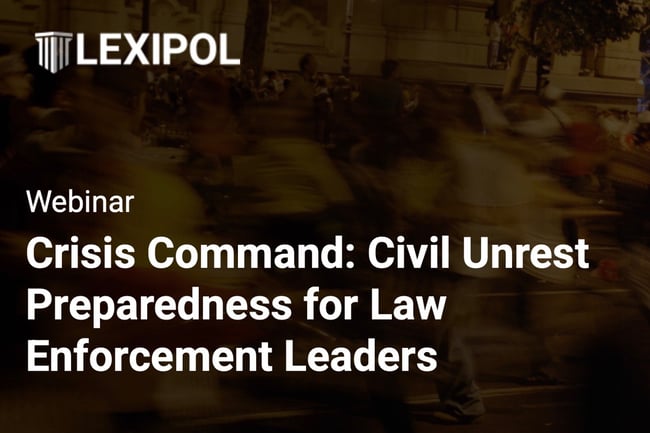

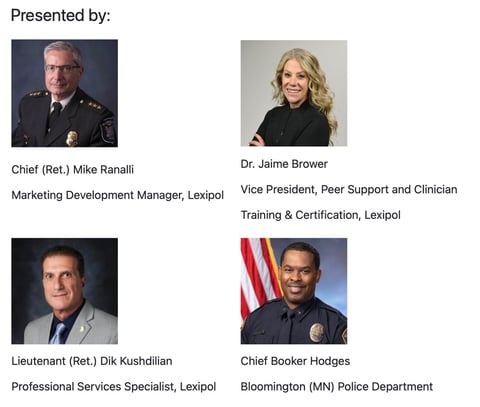

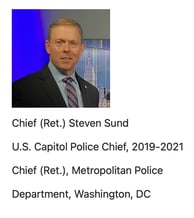

Webinar Recorded Oct. 1, 2024
In today’s unpredictable social climate, law enforcement agencies must be prepared to respond to civil unrest events, particularly those that arise without notice. The absence of time to prepare for unplanned events places immense pressure on law enforcement leaders to ensure their agency personnel are not only tactically ready but also mentally resilient. Balancing the protection of public safety with the preservation of First Amendment rights requires a comprehensive approach that includes policy development, continuous training, proactive wellness strategies, and post-event review and analysis.
Join this Lexipol webinar featuring a panel of law enforcement experts, moderated by attorney and Chief (Ret.) Mike Ranalli, as they share the critical components to consider when preparing for civil unrest. From managing the immediacy of an unfolding event to post-event considerations, law enforcement leaders will be armed with the necessary tools to effectively navigate these complex events.
You’ll learn:
The importance of critical policies and training programs and how to incorporate them into your agency’s planning process.
Techniques for maintaining personnel wellness before, during, and after civil unrest events, including the management of moral injury and support for families.
Best practices for involving businesses and the community in pre-event planning to ensure a unified response.
Strategies for managing the aftermath of civil unrest, including the preparation of after-action reports and navigating the political landscape.
